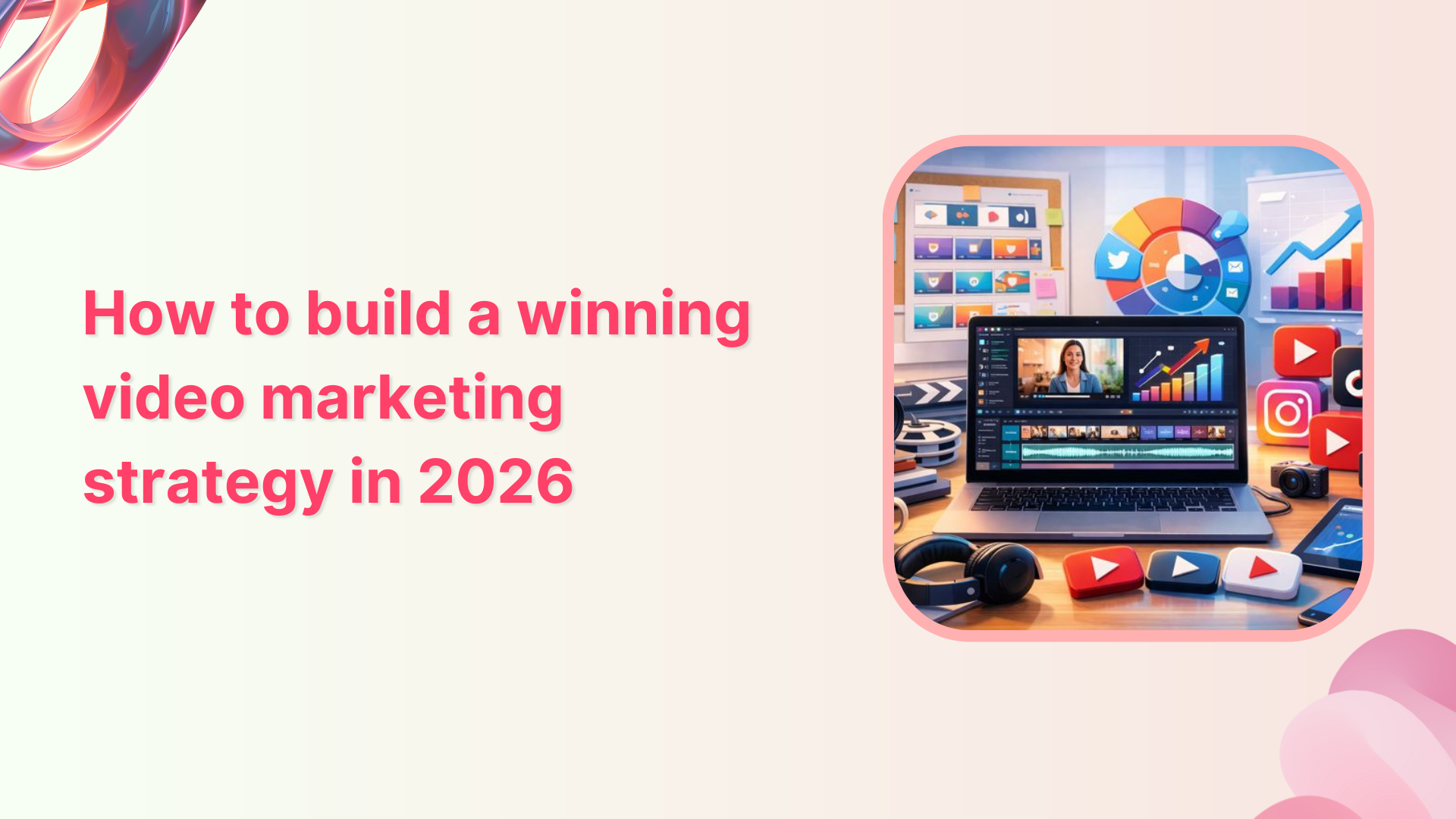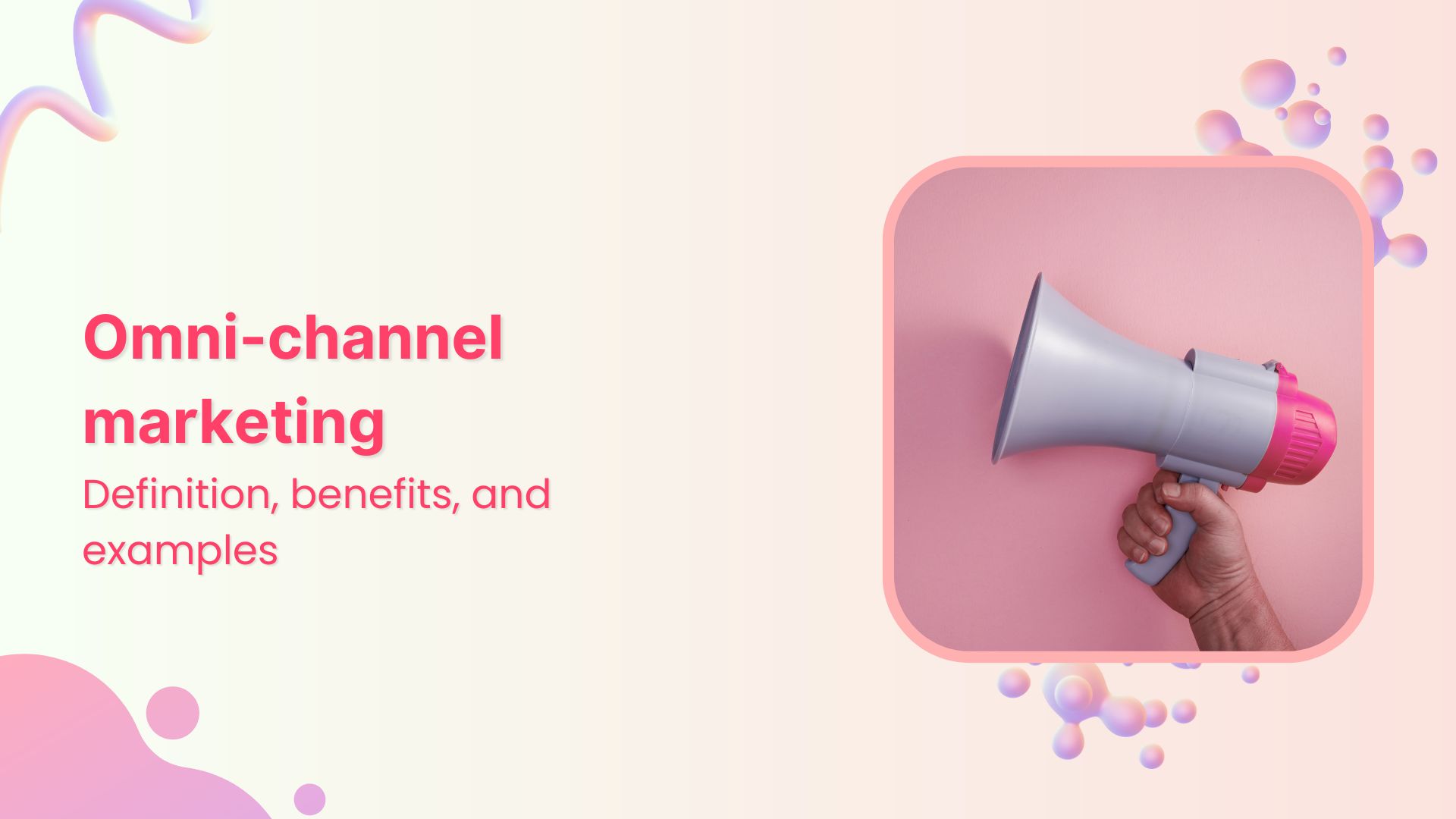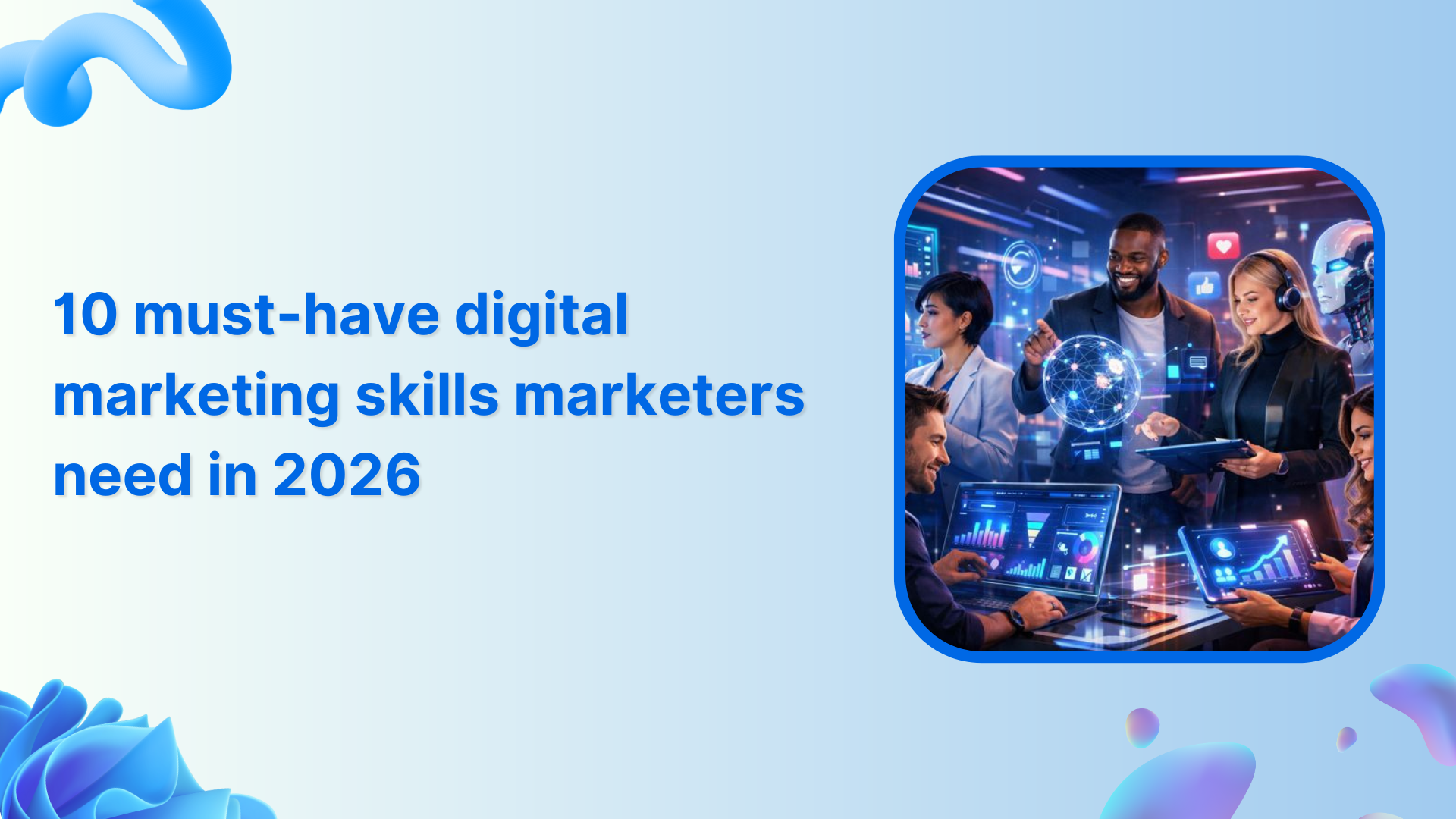Bulk-generate & schedule posts in seconds with Smart Scheduling. Try now!
OpenAI
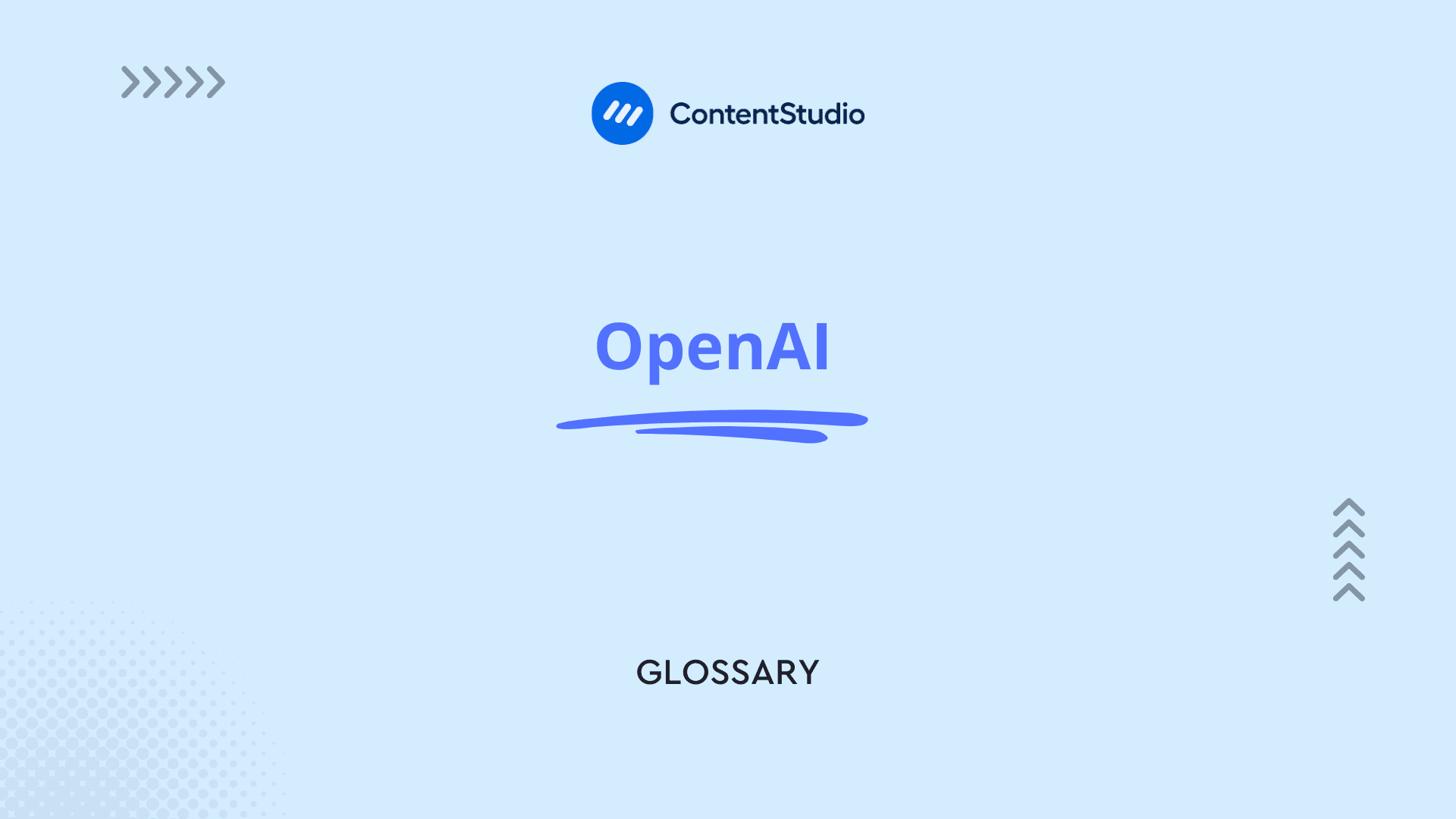
What is the OpenAI?
OpenAI is an artificial intelligence research laboratory consisting of the for-profit corporation OpenAI LP and its parent company, the non-profit OpenAI Inc.
Founded in December 2015, the organization has become one of the world's leading AI research entities, developing influential technologies that have transformed the digital landscape, including GPT (Generative Pre-trained Transformer) models, DALL-E image generation, and other advanced AI systems.
History and evolution of OpenAI
OpenAI was established with a mission to ensure that artificial general intelligence (AGI) benefits all of humanity. The organization's journey reflects the rapid evolution of AI technology over the past decade.
Founding and early years
OpenAI was founded in December 2015 by a group of tech entrepreneurs and researchers including Elon Musk, Sam Altman, Greg Brockman, Ilya Sutskever, John Schulman, and Wojciech Zaremba.
Initially established as a non-profit with a $1 billion pledge from its founders and supporters, OpenAI aimed to develop safe and beneficial AI in a way that would be openly shared with the world.
Transition to capped-profit model
In 2019, OpenAI restructured to create OpenAI LP, a "capped-profit" company under the non-profit OpenAI Inc.
This shift was designed to attract the capital needed for large-scale AI development while maintaining the organization's mission-driven approach. Under this model, investors can receive limited returns, with the majority of potential profits going back to the non-profit entity.
Major technological developments
OpenAI's technological evolution has included several breakthrough developments:
- 2018: Released GPT-1, the first in its series of large language models
- 2019: Introduced GPT-2, which demonstrated improved text generation capabilities
- 2020: Launched GPT-3, which represented a massive leap in scale and capability
- 2021: Released DALL-E, a system that generates images from text descriptions
- 2022: Launched ChatGPT, bringing conversational AI to mainstream audiences
- 2023: Released GPT-4, further advancing the capabilities of large language models
Key OpenAI technologies and their applications
OpenAI has developed several groundbreaking technologies that have transformed how businesses and individuals interact with artificial intelligence.
GPT models and language processing
The Generative Pre-trained Transformer (GPT) series represents OpenAI's most influential contribution to AI development:
- GPT-3: With 175 billion parameters, GPT-3 demonstrated unprecedented language understanding and generation capabilities
- GPT-4: The latest iteration shows enhanced reasoning, creativity, and specialized knowledge
- ChatGPT: A conversational interface built on GPT models that made AI accessible to the general public
These technologies have been integrated into numerous applications, from content creation tools to customer service automation. Marketers use these tools for various purposes, including generating social media content and creating engaging copy.
DALL-E and image generation
DALL-E represents OpenAI's venture into visual content generation:
- Generates original images based on text descriptions
- Creates variations of existing images while maintaining core elements
- Allows for detailed style specifications and complex scene composition
Marketers and content creators use DALL-E for creating engaging images for social media, designing promotional materials, and visualizing concepts quickly without traditional graphic design resources.
Codex and programming assistance
Codex, the model powering GitHub Copilot, translates natural language into code:
- Helps developers write code more efficiently
- Suggests solutions to programming problems
- Supports multiple programming languages
- Enables natural language interfaces for technical tasks
Other OpenAI technologies
OpenAI has developed additional technologies with significant applications:
- Whisper: An automatic speech recognition system that transcribes audio into text
- CLIP: A neural network that connects text and images, understanding visual concepts through language
- Jukebox: A neural network that generates music, including rudimentary vocals
OpenAI in marketing and content creation
OpenAI's technologies have revolutionized marketing and content creation, offering new tools for efficiency, creativity, and personalization.
Content generation and enhancement
AI-powered content creation has transformed how marketers approach content development:
- Writing assistance: Generating drafts, outlines, and ideas for blog posts, social media, and marketing copy
- Content repurposing: Converting existing content into different formats or styles
- Personalization at scale: Creating customized content for different audience segments
- Language translation and localization: Adapting content for international markets
Tools incorporating OpenAI technology can help with tasks like caption generation, social media post creation, and developing content marketing strategies.
Social media management
OpenAI technologies have particular relevance for social media marketers:
- Post generation: Creating platform-specific content that matches brand voice
- Response suggestions: Helping community managers respond to comments and messages
- Content planning: Generating ideas for content calendars
- Hashtag research: Identifying relevant and trending hashtags for improved reach
Many social media management tools now incorporate AI capabilities to enhance content creation and engagement.
Visual content creation
DALL-E and similar image generation tools have transformed visual marketing:
- Social media visuals: Creating eye-catching graphics for posts
- Ad creative: Generating multiple variations for testing
- Product visualization: Illustrating concepts before production
- Brand consistency: Maintaining visual identity across numerous content pieces
When combined with social media scheduling tools, visual AI helps marketers maintain a consistent and engaging visual presence.
SEO and content optimization
OpenAI tools assist with search engine optimization and content performance:
- Keyword research and integration: Identifying valuable keywords and incorporating them naturally
- Meta description generation: Creating compelling meta descriptions that improve click-through rates
- Content structure suggestions: Improving readability and user engagement
- Topic cluster development: Identifying related topics for comprehensive coverage
These capabilities complement existing SEO strategies and content management approaches.
Integrating OpenAI technologies into marketing workflows
Effectively incorporating OpenAI's capabilities into marketing processes requires strategic implementation.
Best practices for AI implementation
To maximize the benefits of OpenAI technology in marketing:
- Maintain human oversight: Review and refine AI-generated content before publication
- Establish brand guidelines: Provide clear parameters for AI content to maintain brand voice
- Use as a starting point: Treat AI outputs as drafts to be enhanced with human creativity
- Test and optimize: Compare performance of different AI-generated content approaches
- Combine with analytics: Use social media analytics to refine AI content strategies
Ethical considerations
When implementing OpenAI technologies, marketers should consider several ethical dimensions:
- Transparency: Being open with audiences about AI use in content creation
- Authenticity: Ensuring AI-generated content aligns with brand values and voice
- Accuracy: Verifying factual information in AI outputs
- Privacy: Considering the data used to train or fine-tune AI systems
- Inclusivity: Reviewing AI content for bias and ensuring diverse representation
These considerations align with broader social media etiquette and responsible marketing practices.
Workflow integration examples
Practical examples of integrating OpenAI into marketing workflows include:
- Content ideation sessions: Using AI to generate initial concepts that marketing teams refine
- Draft acceleration: Having AI create first drafts that copywriters enhance and personalize
- Social media batching: Generating multiple social media posts for review and scheduling
- A/B testing variations: Creating multiple versions of marketing messages for performance testing
- Customer response templates: Developing personalized reply frameworks for common inquiries
Tools like ContentStudio's AI assistant can help streamline these workflows by combining AI capabilities with content management and scheduling features.
Future trends in OpenAI technology for marketers
The landscape of AI-powered marketing continues to evolve rapidly, with several emerging trends likely to shape future applications.
Multimodal AI systems
Future AI systems will increasingly work across multiple types of content:
- Combined text, image, video, and audio generation capabilities
- Seamless translation between different content formats
- Integrated content packages that maintain consistency across media types
These capabilities will enhance omnichannel marketing strategies by creating cohesive experiences across touchpoints.
Personalization and targeting
AI-powered personalization will become more sophisticated:
- Dynamic content adaptation based on user behavior and preferences
- Predictive content recommendations for different audience segments
- Automated A/B testing and optimization of personalized content
These advances will help marketers better achieve social media goals related to engagement and conversion.
Voice and conversation
As conversational AI improves, new marketing opportunities emerge:
- Voice-optimized content for audio platforms and voice search
- More natural conversational interfaces for customer interactions
- Voice-driven content creation and editing workflows
Expanded creative capabilities
AI creative tools will continue to expand in capability and application:
- Enhanced video generation and editing
- More sophisticated style control and brand alignment
- Better understanding of cultural nuances and context
These advances will provide new options for social media creativity and engagement.
Challenges and limitations
Despite rapid advances, OpenAI technologies present several challenges for marketers.
Technical constraints
Current limitations include:
- Knowledge cutoffs that limit awareness of recent events
- Occasional factual inaccuracies requiring verification
- Difficulty with highly specialized or technical content
- Limited understanding of nuanced brand contexts
Balancing automation and authenticity
Marketers must navigate the tension between efficiency and authenticity:
- Maintaining brand voice and personality in AI-generated content
- Ensuring emotional intelligence in customer interactions
- Preserving the human connection that audiences value
- Avoiding generic content that fails to stand out
Successful strategies often combine AI efficiency with human creativity to maintain brand authenticity.
Regulatory and compliance considerations
The regulatory landscape around AI in marketing continues to evolve:
- Disclosure requirements for AI-generated content
- Data privacy regulations affecting AI training and implementation
- Intellectual property questions around AI-created content
- Industry-specific regulations for sectors like finance or healthcare
Conclusion
OpenAI has fundamentally transformed the marketing and content creation landscape, providing powerful tools that enhance creativity, efficiency, and personalization. From generating social media posts to creating custom images and optimizing content strategy, OpenAI's technologies offer marketers unprecedented capabilities.
By staying informed about AI developments, establishing clear guidelines for implementation, and maintaining a balance between automation and authenticity, marketers can leverage OpenAI's innovations to create more engaging, relevant, and effective content across channels.
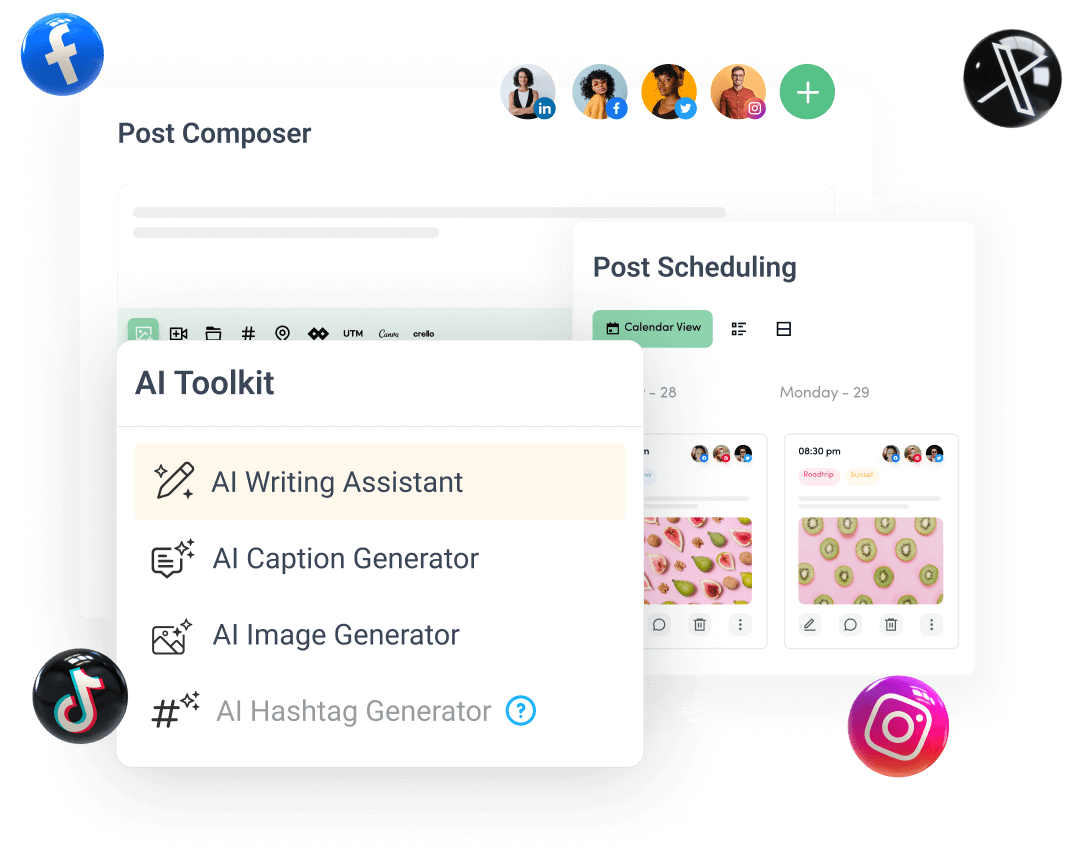
Create, plan, schedule, and publish posts on all social media networks
Recommended for you


Powerful social media management software
14-day free trial - No credit card required.
